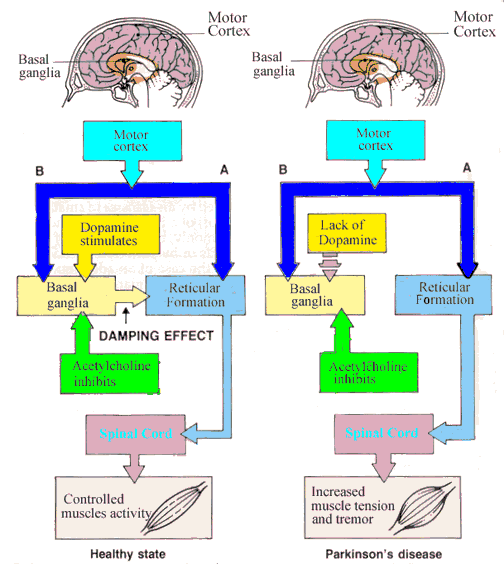
LOS ANGELES (Reuters) – A small trial has shown that a type of gene therapy for patients with advanced Parkinson’s disease can reduce symptoms of the devastating brain condition.
The 45-patient study, published in the journal Lancet Neurology, is the first successful trial to compare gene therapy — which involves inserting a new gene into the brains of Parkinson’s patients — to a sham surgical procedure.
The idea behind the therapy is to replace faulty genes or augment the activity of beneficial genes, but safety and efficacy concerns have held back the field, which first emerged some 20 years ago. an Arizona teenager died in a 1999 gene therapy trial, while in another two people developed leukemia as a result of such treatment.
In the Parkinson’s trial, funded by Neurologix Inc, the delivered gene controls production of an enzyme called GAD or glutamic acid decarboxylase. GAD controls a neurotransmitter or message-carrying chemical called GABA.
GABA calms overactive neurons, and its production is lost in Parkinson’s, resulting in the debilitating movement problems that mark the disease.
The treated group showed a 23.1 percent improvement on a scale of Parkinson’s symptoms six months after treatment, compared to a 12.7 percent improvement for patients who received sham surgery, according to the published research.
The trial results include only those patients with infusions delivered to the correct area of the brain. there were also a few cases where the pumps delivering the treatment malfunctioned and those cases were also taken out of the analysis.
The final analysis included 16 patients who received active treatment and 21 who received the sham surgery.
“The treatment was remarkably well tolerated, with mostly only mild adverse events in the AAV2-GAD treated group that were felt to be unrelated to the treatment, and completely resolved,” Dr. Andrew Feigin, the study’s lead author and associate professor of neurology and molecular medicine at the Feinstein Institute for Medical research in Manhasset, New York, said in a statement.
The most common side effects were headache and nausea.
The researchers said it is not clear how long the genes will pump out GAD to make GABA.
(Editing by Bernard Orr)